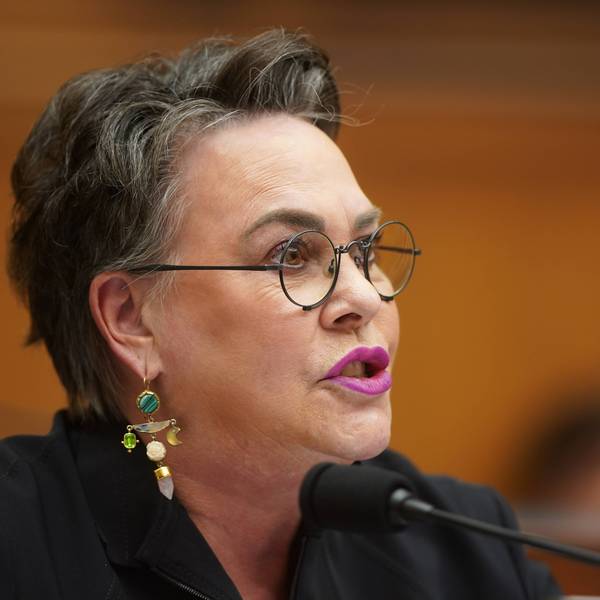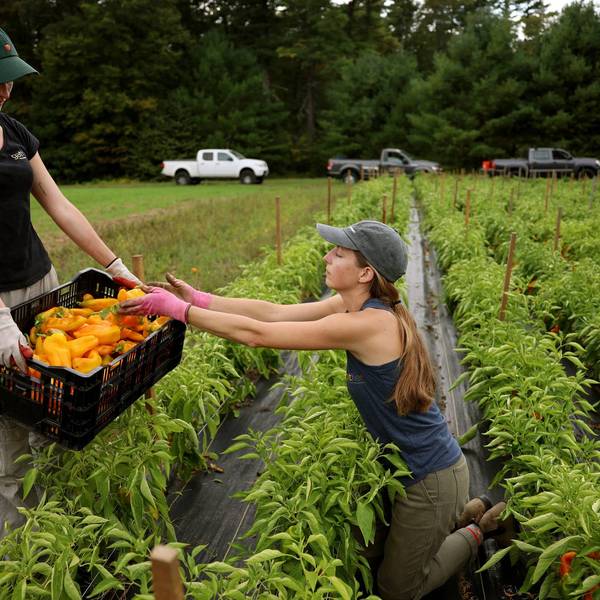Five new bills being considered by Congress this session could help industry find a way out of cleaning up dangerous "forever chemicals," warns the Environmental Working Group.
The bills, introduced by Sens. Cynthia Lummis (R-Wyo.) and John Boozman (R-Ark.) May 4, would protect five key sectors from liability if the Environmental Protection Agency (EPA) moves forward with labeling certain per- and polyfluoroalkyl substances (PFAS) as hazardous substances under the Superfund law: water utilities, landfills, agriculture, airports, and fire training facilities.
"But far more than even these significant loopholes is at stake," Melanie Benesh, vice president for government affairs at the Environmental Working Group (EWG), said. "Their bill would open the door to even more loopholes for companies that have used PFAS or other hazardous substances, making it much harder to clean up contaminated communities."
"Their proposal would be an unprecedented assault on one of our benchmark environmental laws and open the door to similar loopholes for everything from PCBs to dioxin."
PFAS are a class of widely used chemicals found in everything from firefighting foam to nonstick cookware. They are called forever chemicals because they do not break down easily in the environment, and they have spread to contaminate the drinking water of potentially more than 200 million Americans. A growing body of research links them to a host of health threats including cancer, immune suppression, and reproductive or developmental problems.
In recent years, regulators at the state and federal levels have taken steps to limit the spread of PFAS in the environment and clean up what's already there. To that end, EPA proposed listing two PFAS—perfluorooctanoic acid (PFOA) and perfluorooctane sulfonic acid (PFOS)—as hazardous substances under the Superfund law, officially the Comprehensive Environmental Response, Compensation, and Liability Act, in August 2022.
Such a listing would trigger reportings of large releases of PFOA and PFOS and enable the EPA to require a cleanup and, in some cases, demand the polluter pay for it. Green groups at the time, including EWG, praised the move as historic, but argued the federal government could go further.
Now, EWG says Lummis and Boozman's bills would not only weaken this initial attempt to regulate PFAS, but the strength of the Superfund law all together.
"More than PFOA and PFOS are at stake," Benesh wrote for EWG's website. "Since passage of the Superfund law, Congress has never created the kind of exemptions proposed by Lummis and Boozman. Their proposal would be an unprecedented assault on one of our benchmark environmental laws and open the door to similar loopholes for everything from PCBs to dioxin."
In a statement, Lummis and Boozman argued that their bills would protect sectors that either did not contribute to PFAS contamination or were required to use substances containing PFAS.
"There is no doubt we need to consider the environmental impacts of PFAS chemicals but suing entities who did not contribute to the contamination is overkill, especially considering some of these entities, such as ranches and water facilities, are just downstream receivers," Lummis said.
However, EWG argues that these extra liability protections are not necessary.
"The EPA already has leeway over which polluters it holds responsible for cleanup," Benesh observed. "The agency has successfully used this discretion for over 40 years to ensure polluters pay the lion's share of the cleanup under Superfund."
In this case, the EPA has already promised to focus on manufacturers and government facilities rather than water utilities, farmers, fire departments, airports, or landfills. It also tends to settle quickly with innocent parties, which then protects them from being sued by outside groups.
What's more, the bills would act as a "slippery slope," as Benesh explained:
The Lummis-Boozman bills apply to just five sympathetic sectors. But those aren't the only ones clamoring for an escape from liability.
For example, when Congress voted on the PFAS Action Act in 2021, Republicans offered amendments exempting medical devices, semiconductors, lithium batteries, solar panels, wind turbines, pipeline safety equipment, and chlorine production from Superfund. Now, if the Senate gives loopholes to sectors like water utilities and farmers, these other polluters will only be more emboldened to ask again for their own loopholes.
Benesh said it was important to guard the Superfund law against a death by a thousand industry papercuts.
"We must protect Superfund to ensure contaminated communities get the cleanup they need and deserve," Benesh wrote.




